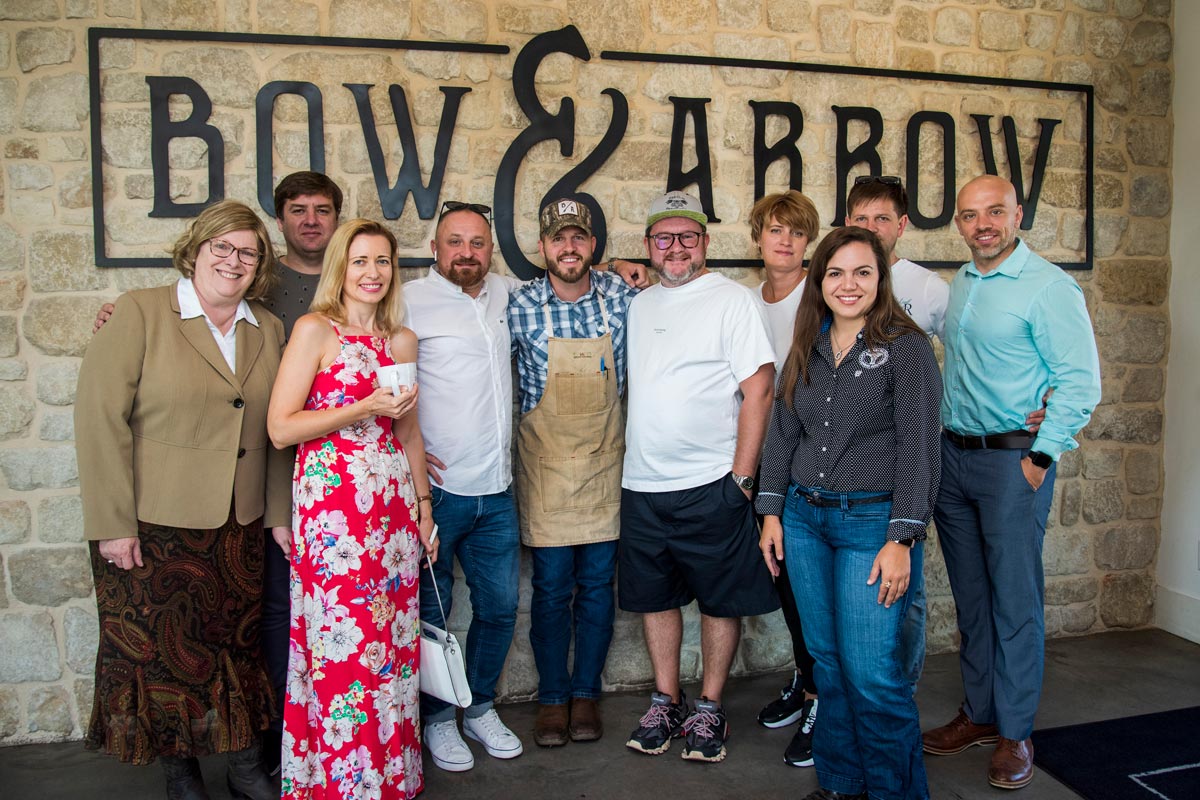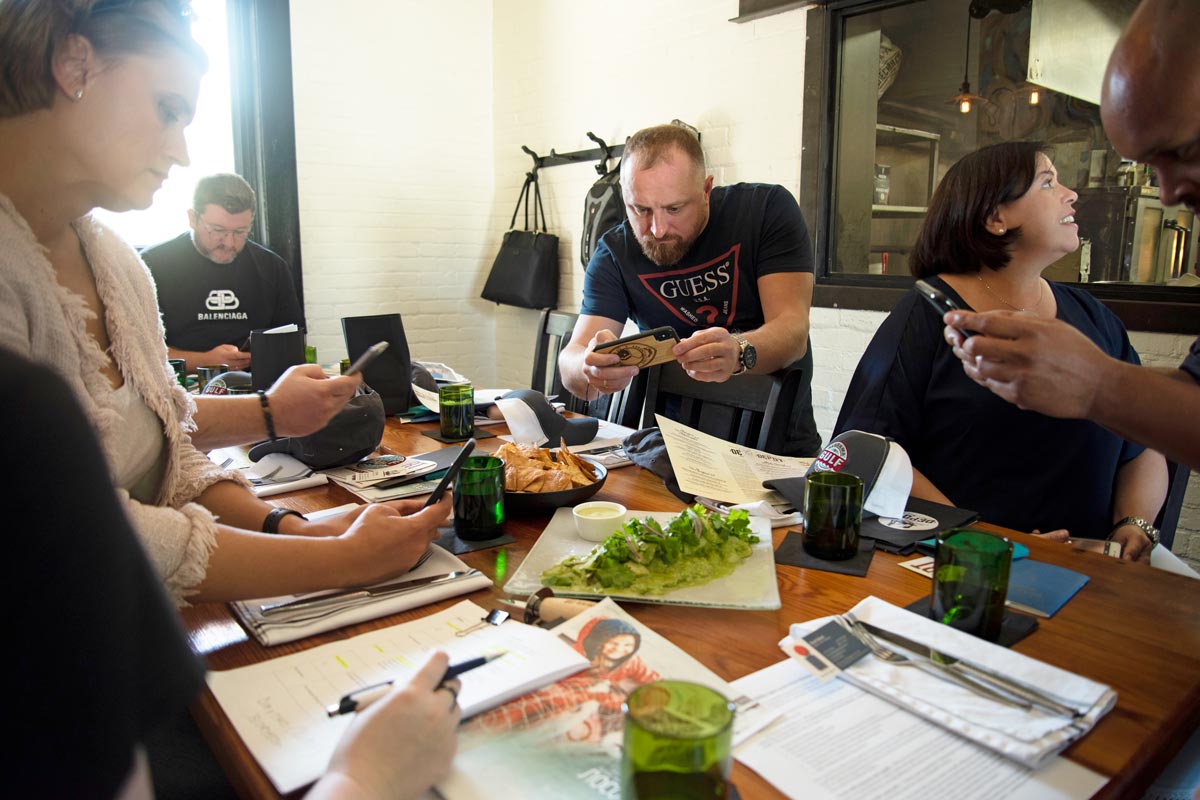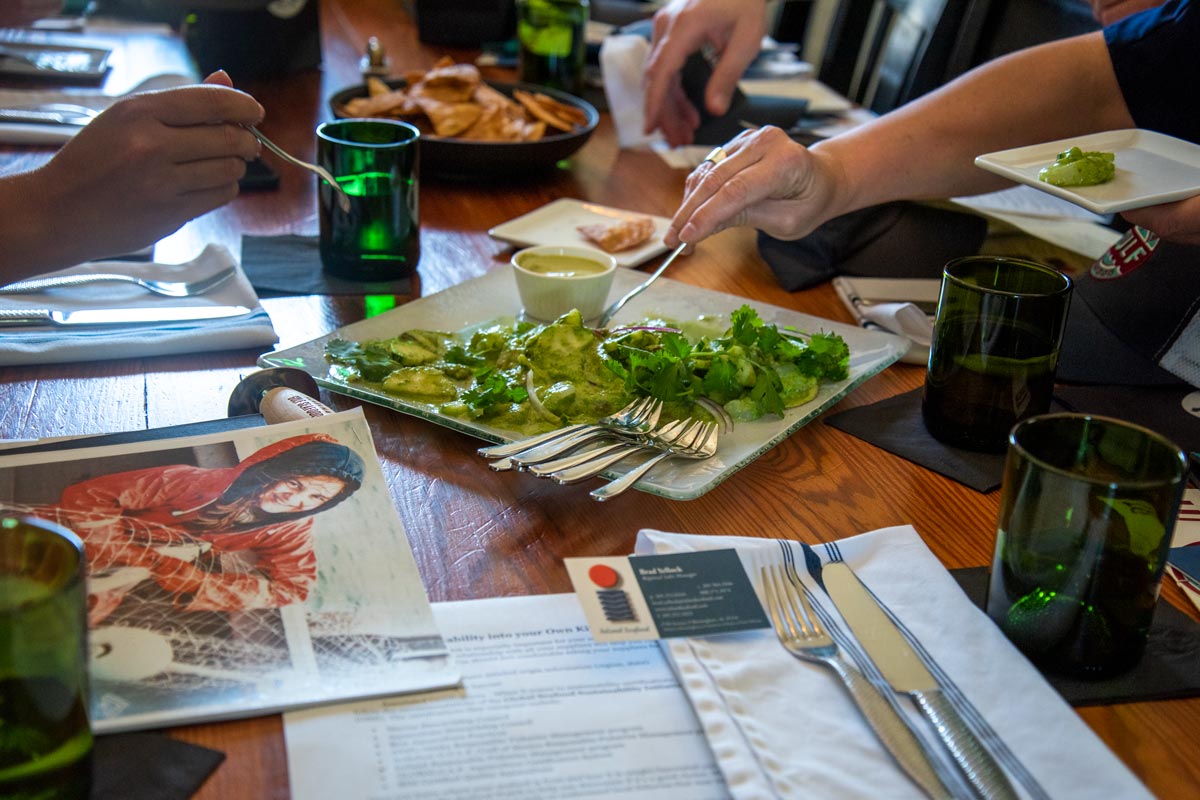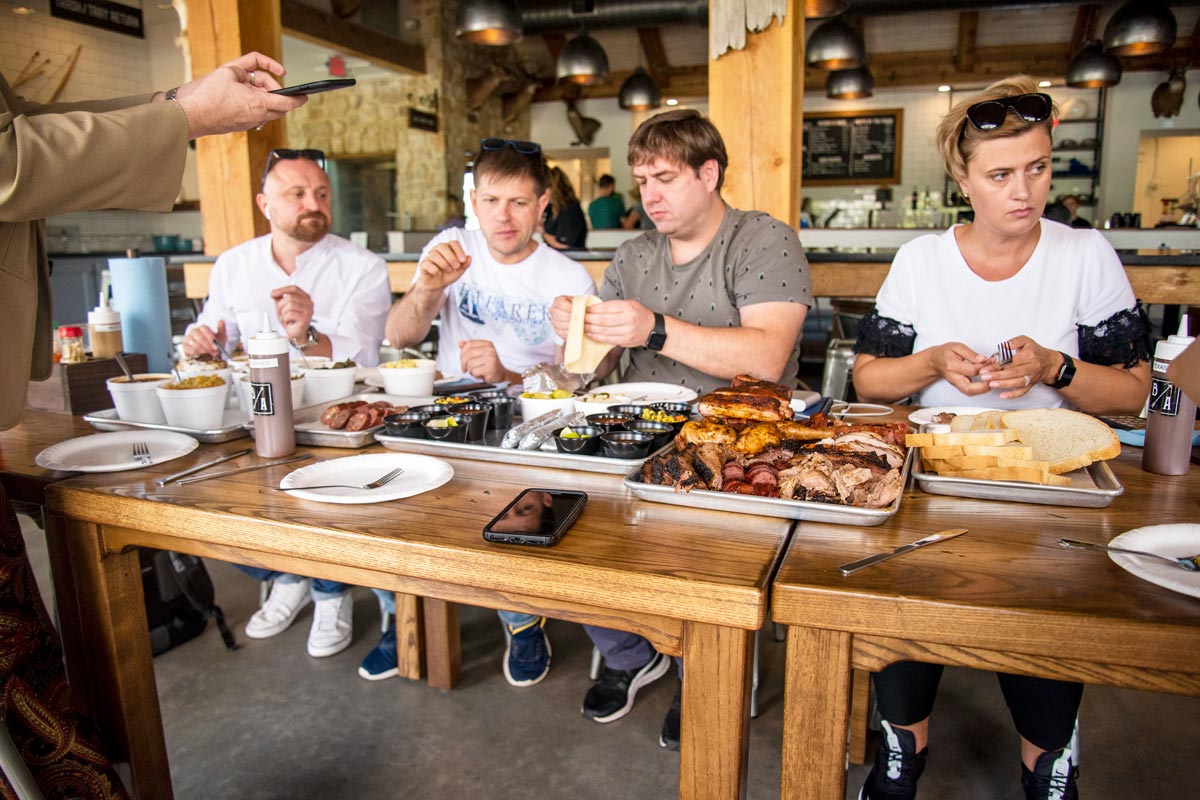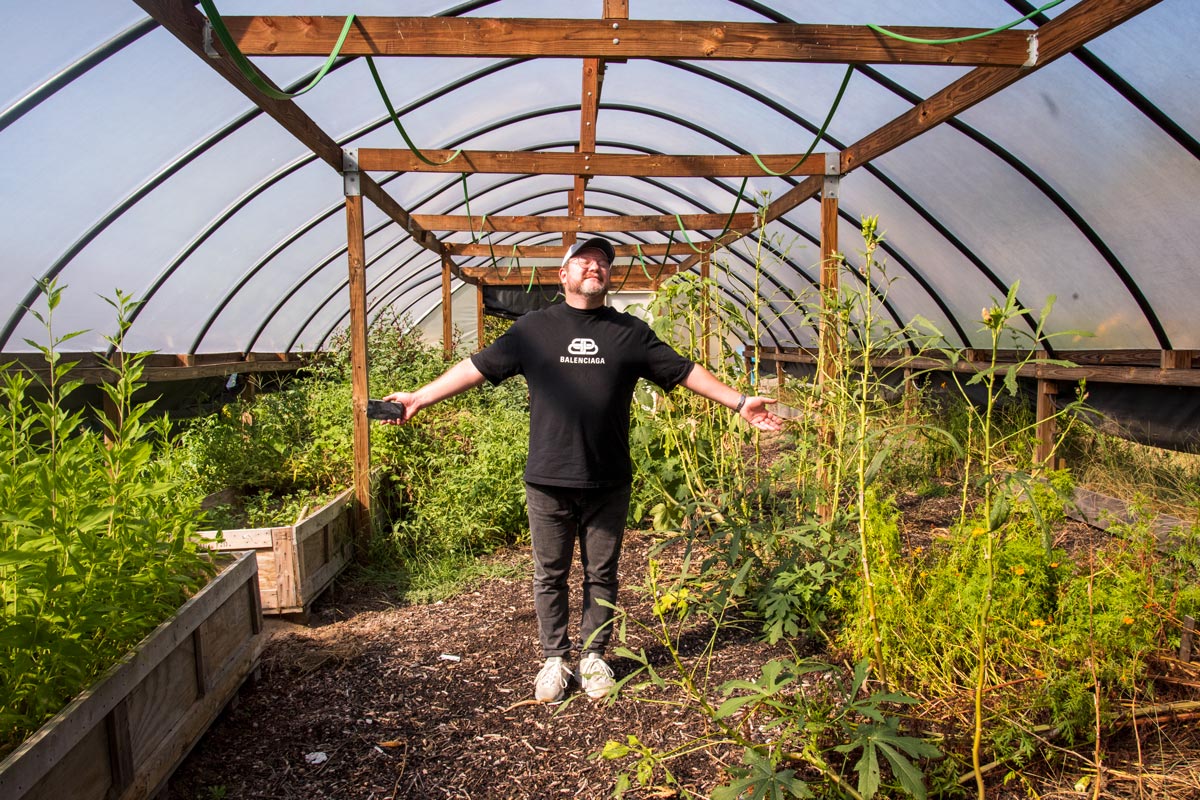Auburn University Culinary Science Program Director Shatters Stereotypes of Unhealthy American Cuisine
Charlotte Tuggle | Communications Editor
This fall, Auburn University Culinary Science Director Mark Traynor showcased American cuisine in an immersive international program for the greater good of culinary education and the industry’s economic impact.
Through a U.S. Department of Agriculture Cochran Fellowship for Gastronomy Education and Promoting U.S. Cuisine for Ukraine, Traynor led five fellows representing leaders of the Ukrainian culinary world with a focus on the diverse gastronomy of the southeastern U.S.
Traynor said this project builds international exposure of American cuisine and has a positive economic impact for the country’s culinary sphere.
“We are showing them true, contemporary American cuisine and a representation of gastronomy in the area,” Traynor said. “These fellows are all influential chefs in Ukraine, so they can disseminate a true representation of our regional cuisine, which results in their importing of products from here, whether it’s technology and equipment, spice mixes, sauces or other items.”
Traynor, as principal investigator of the first program to feature contemporary American cuisine in the southeast designed to increase U.S. exports in areas of the world that would benefit from American products, crafted an experience that showcased the diversity, creativity and quality of U.S. cuisine. The fellows on the program learned about restaurant functions, culinary trends, cooking techniques, innovative marketing, food production, U.S. food products, food and drink pairings, crop seasons and U.S. food quality standards.
In Auburn, Alabama, Traynor led the fellows through important lessons on the diversity of U.S. cuisine, brewing, Southern food trends, food production, food pairing, sustainable practices, artisan food, locally-sourced and farm-to-table practices, smoked meat preparation, restaurant management practices and barbecue. The U.S. has what Traynor calls the “gold standard” of barbecue equipment, techniques and spices.
According to Igor Bragin, who founded the National Association of Head Chefs in Ukraine and the Culinary Academy of Ukraine, smoked American foods such as barbecue are increasingly trendy in his home country. And Kateryna Avdeeva, who runs an innovative culinary education center with students spanning Eastern Europe, said her goal is to organize a barbecue training center for chefs.
“Barbecue is very new in Ukraine, and many people think that there is only one style of it. I want to have a classroom in my educational center dedicated to barbecue,” she said. “I plan on buying American equipment, using American spices and inviting American barbecue chefs to Ukraine to train these chefs so that they can take advantage of these lessons.”
On the next stage of the program featuring Atlanta, Georgia, Traynor introduced the Ukrainian culinary leaders to food markets, American desserts, health foods, coffee, global flavors and elevated street food. These lessons continued in Miami with an immersive experience in the realm of organic foods, health trends, fine dining, hotel restaurants, fusion cuisine, kosher foods, seafood and U.S. cuisine trends.
The fellows ended their immersive culinary journey in New York City with lessons about fusion cuisine, emerging food trends, food halls, food production, restaurant functions, seasonal foods and authentic New York cuisine. Traynor said New York is historically know as a hub for emerging food trends, which ended the program on a forward-thinking note for the Ukrainian chefs.
Designed to increase U.S. exports in areas of the world that would benefit from American products, the USDA Cochran program uniquely positions Traynor and Auburn’s Culinary Science program to not only positively affect the American economy, but to dispel myths about American cuisine.
Those myths will be a challenge for Auburn’s accredited Culinary Science undergraduate program students to overcome in the professional world. Auburn hospitality students will soon have a unique opportunity for immersive, hands-on preparation in the upcoming Rane Culinary Science Center – a first-of-its kind academic facility that will expertly prepare tomorrow’s top-tier culinary and hospitality leaders to help reshape the worldview of American cuisine.
“This is an opportunity for Auburn to lead a movement to tell the world about the positive story of American gastronomy,” said Traynor. “As a culinary educator training culinary professionals, it is my duty and passion to help overcome the idea that American cuisine as a whole is unhealthy. By showing culinary influencers from other countries the true essence of healthy, sustainable American food, we can make a difference in not only developing economies, but promote American products and shed a positive light on our craft.”
